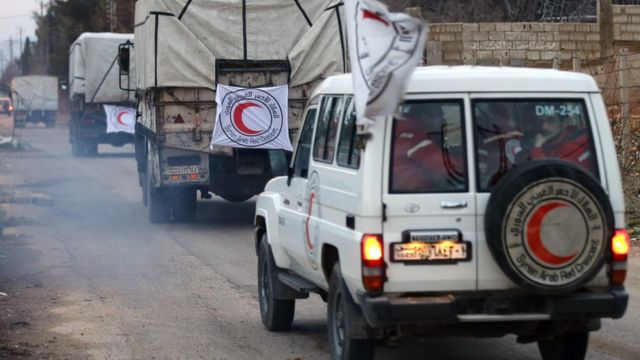
Madaya Syria: Aid convoy reaches besieged town - bbc.com
nytimes.com - Associated Press - January 11, 2016
Aid convoys delivered long-awaited food, medicine and other supplies to three besieged communities Monday, part of a U.N.-supported operation to help tens of thousands of civilians cut off for months by the war in Syria.
Reports of starvation and images of emaciated children have raised global concerns and underscored the urgency for new peace talks that the U.N. is hoping to host in Geneva on Jan. 25.
The U.N. Security Council took up the issue Monday. The U.N. says 4.5 million Syrians are living in besieged or hard-to-reach areas and desperately need humanitarian aid, with civilians prevented from leaving and aid workers blocked from bringing in food, medicine, fuel and other supplies.
It will take several days to distribute the aid in the town of Madaya, near Damascus, and the Shiite villages of Foua and Kfarya in northern Syria, and the supplies are probably enough to last for a month, aid agencies said.
(READ COMPLETE ARTICLE)
ALSO SEE RELATED ARTICLES IN THE LINKS BELOW:
Recent Comments